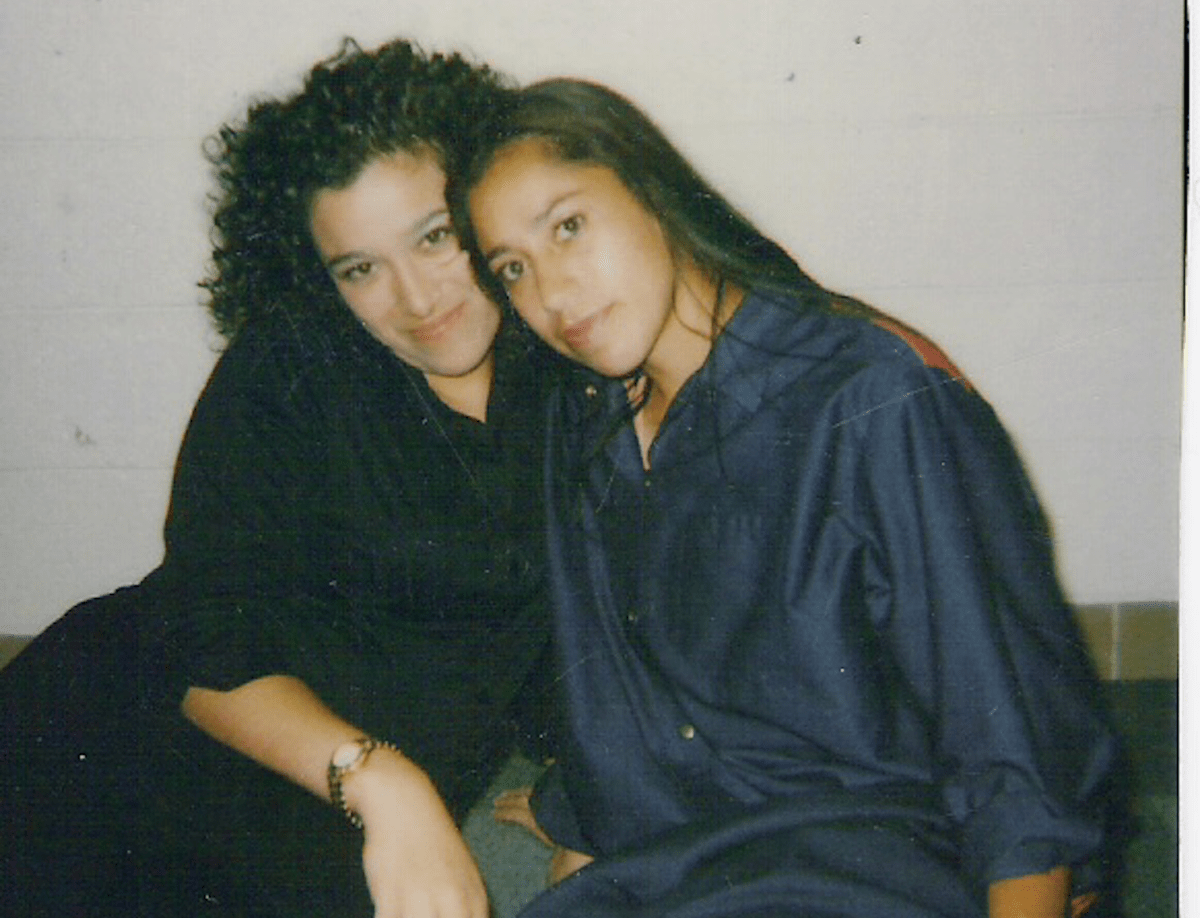The Supreme Court Ruled That Sentences Like Hers Are Unconstitutional. Prosecutors Are Fighting To Keep Her Incarcerated.
Prosecutor Jessica Cooper of Oakland County, Michigan, has aggressively pursued life without the possibility of parole for children, critics say. She recommended the sentence for Barbara Hernández, who at 16 was a ‘slave’ to an abusive boyfriend who drew her into a plan that ended in murder.

In the spring of 1990, when Barbara Hernández was 16, her boyfriend, then 20, came up with a plan, according to court documents: She would bring a man to an abandoned house on the pretense of prostitution, and her boyfriend would rob him.
Hernández had met her boyfriend, James Hyde, when she was in junior high school. Over the course of their relationship, she said Hyde coerced her into sex work, routinely beat her, and repeatedly raped her, according to court documents.
When she brought 28-year-old James Cotaling to the house in Pontiac, Michigan, where she and Hyde had been staying, Hyde stabbed him about two dozen times. Hyde and Hernández were both convicted of murder and sentenced to life without the possibility of parole.
In 2012, in Miller v. Alabama, the Supreme Court decided that mandatory life without the possibility of parole sentences for juveniles, like the one Hernández received, were unconstitutional. In 2016, in Montgomery v. Louisiana, it ruled that the decision applied retroactively. Hernández was one of about 2,000 people nationally who would be eligible for a new sentence.
But some prosecutors appear to be resisting the Court’s decision. So far, Oakland County Prosecutor Jessica Cooper has requested that the courts reimpose life without the possibility of parole in 43 out of 48 of the county’s juvenile lifer cases, according to an investigation by the Detroit Free Press. By asking for life without the possibility of parole in the majority of cases, youth advocates say Cooper has repeatedly ignored her obligations under Miller and Montgomery.
At the request of Cooper’s office, a circuit court judge sentenced Hernández, now 45, to life without the possibility of parole on Aug. 8.
“Not only are these policies and practices that she’s pursuing inhumane and cruel, but they also don’t follow what is in our view clear Supreme Court guidance,” said Udi Ofer, director of the Campaign for Smart Justice at the ACLU, which opposes juvenile life without the possibility of parole in all circumstances. “And that is, a sentence of life without parole for a crime committed by a child should be reserved for only the rarest of the rare circumstances.”
Cooper did not respond to The Appeal’s requests for comment, although she has previously spoken publicly about juvenile life without the possibility of parole. “We are talking about victims who were stabbed, drowned, bludgeoned and decapitated,” Cooper told Bridge, a local news outlet, in 2016. “Many of these crimes were totally random. They walked up to a car and decided to shoot in it. On and on and on and on. We are really talking about awful cases.”
The United States remains the only country that sentences children to life without the possibility of parole, say advocates. The Supreme Court has not yet found juvenile life without the possibility of parole unconstitutional, although 22 states and Washington, D.C. have banned the practice. Rather, the justices ruled that courts must attempt to distinguish between, “the juvenile offender whose crime reflects unfortunate yet transient immaturity, and the rare juvenile offender whose crime reflects irreparable corruption.”
In August, prosecutor Tricia Dare invoked this language when she asked Judge Nanci Grant to sentence Hernández to life without the possibility of parole. The crime, Dare said, was “not an act involving transient immaturity,” according to a transcript of the proceeding.
Hernández’s supporters contest the prosecutor’s view and the judge’s ruling, pointing to her traumatic childhood, as well as Hyde’s alleged abuse. According to court filings, a 1991 psychological report said Hernández stayed with Hyde because “she was afraid of him and had no place to go.” In a psychiatric report detailed in the filings, Hernández was described as “essentially a slave” to Hyde.
“I didn’t want him to kill me and now I wish that he did,” said Hernández, according to the 1991 psychiatric report. “I’d be dead somewhere and I would be free from him. He wouldn’t hurt me no more. I didn’t want that man to die (crying).”
Hyde did not respond to a request for comment.
Hyde and Hernández were tried together, but with separate juries. Detective Ralph Monday testified that Hernández may have held down the victim, a statement he has since disavowed. According to his investigation, only Hyde attacked the victim, Monday wrote in an affidavit.

“My memory right now is that she had no role in even touching the guy,” Monday told the Associated Press in 2013. “Why I testified to that, who knows?” he said.
Even before she met Hyde, Hernández had been sexually and physically abused, according to court documents. Starting when she was 4 years old, her biological father molested her. The abuse stopped in 1982 when she was 8 and he was arrested for raping her mentally disabled aunt. Shortly thereafter, her mother’s boyfriend moved in, and he raped Hernández from the ages of about 9 to 12 years old, according to a mitigation report.
Hernández and her siblings were often beaten, neglected, and without food, according to court documents. When she met Hyde, she and her family were living in a trailer without electricity, water, heat, or a toilet, according to the mitigation report. After school, Hyde took her to his home where she would shower, according to the report.
“This was a travesty,” her attorney Deborah LaBelle told The Appeal of Hernández’s sentence. “She is like a Miller poster child.” Last month, her attorneys filed an appeal with the Michigan Court of Appeals.
During her incarceration, her supporters note, Hernández earned her GED and took college courses. Since 2011, she has worked as a tutor and mentor at the Women’s Huron Valley Correctional Facility, according to the Department of Corrections.
“I would be more than happy to have her as a neighbor myself,” Pamela Odum, who retired from the Department of Corrections, told Judge Grant’s court. “Rehabilitation comes from within. You have to want it and I’ve watched her grab it with both hands.”
On the whole, Michigan’s prosecutors have taken a slower and more punitive approach than most other states, advocates say. In Michigan, as of July 1, 55 percent of the state’s juvenile lifers—just under 200—were awaiting resentencing, according to the Detroit Free Press. In Pennsylvania, however, 221 juvenile lifers have already been released, according to the Department of Corrections. Sixty-seven remain to be resentenced.
“People’s lives, their fate is determined more based on where they live than their crime,” said Jody Lavy, executive director of the Campaign for the Fair Sentencing of Youth, which advocates for the abolition of juvenile life without the possibility of parole. “Michigan has steadily been an outlier.”
In Michigan, even in cases where a prosecutor has sought life without the possibility of parole, judges have chosen to impose a term of years. As of July 1, 86 juvenile lifers had been released, according to the Detroit Free Press. One of those was Sheldry Topp, who left prison this year at the age of 74. Cooper’s office had asked the court to sentence him to life without the possibility of parole.
In 1962, Topp was convicted of a murder he committed when he was 17. As a child, his father frequently beat him with an extension cord, according to his attorney’s sentencing memorandum. On one occasion, a sibling recalled, his father hit Topp with a baseball bat after he swung and missed the ball, according to the memo. Beginning at the age of 12, he was placed in three mental institutions. As a teenager, he was subjected to electric shock therapy 20 times, according to the memo.
There is variability from state to state, as well as from county to county, said Lavy. The top prosecutor in Ingham County, Michigan, Carol Siemon, told The Appeal in an email, “We have not and will never seek JLWOP [juvenile life without the possibility of parole] under my administration.”
The county’s two juvenile lifers were resentenced to a term of years, with Siemon’s support; one was released and the other is up for parole in 2021, according to the prosecutor’s office.
“I believe that each defendant should be afforded an opportunity to change and be rehabilitated,” Siemon wrote to The Appeal. “It may never happen, but I believe everyone should be provided that possibility and incentive.”
In next year’s Democratic primary, Cooper, who has been in office since 2009, will face a challenger, former family court judge and prosecutor Karen McDonald. McDonald told The Appeal that she was not sure if she supported a ban on life without the possibility of parole for juveniles. When asked if her office would ever seek the sentence for youth, she said, “I wouldn’t say never. I agree with the Supreme Court’s decision that it should be an extremely rare case.”
However, McDonald said, she disagrees with Cooper’s approach to these cases, in particular her handling of Hernández’s case. If elected, she told The Appeal, she plans to advocate for Hernández to be resentenced.
“She should be released,” McDonald said of Hernández. “It’s not keeping the community safe to keep Barbara Hernández in prison.”
The Campaign for the Fair Sentencing of Youth is a sponsor of Elizabeth Weill-Greenberg’s documentary play on young people sentenced to life in prison.
